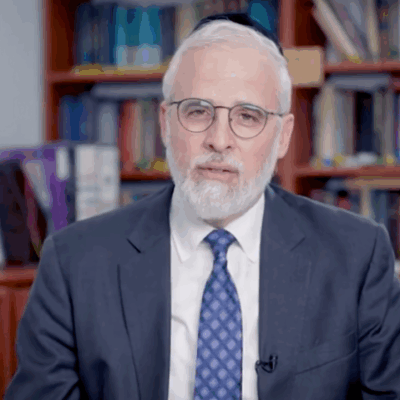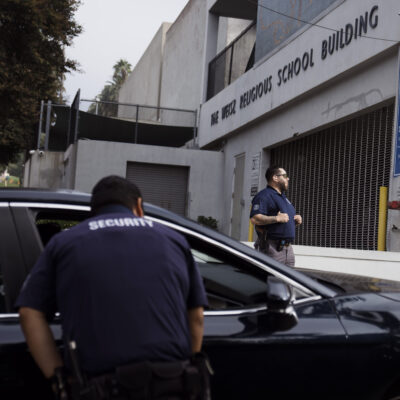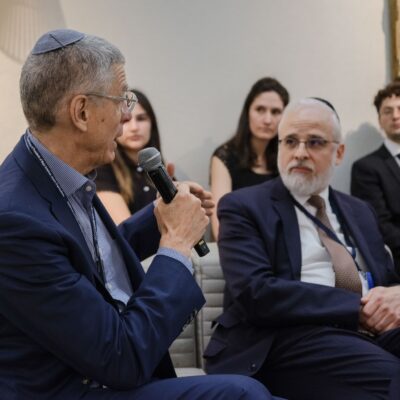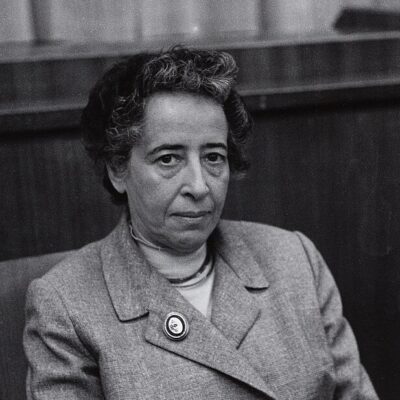BARUCH DAYAN EMET
Stephen Muss, who revitalized Miami Beach and Alexander Muss High School in Israel, dies at 97
Colleagues and acquaintances remember a dedicated, driven 'construction man' who believed in the need to strengthen the Jewish community, teens connections to Israel
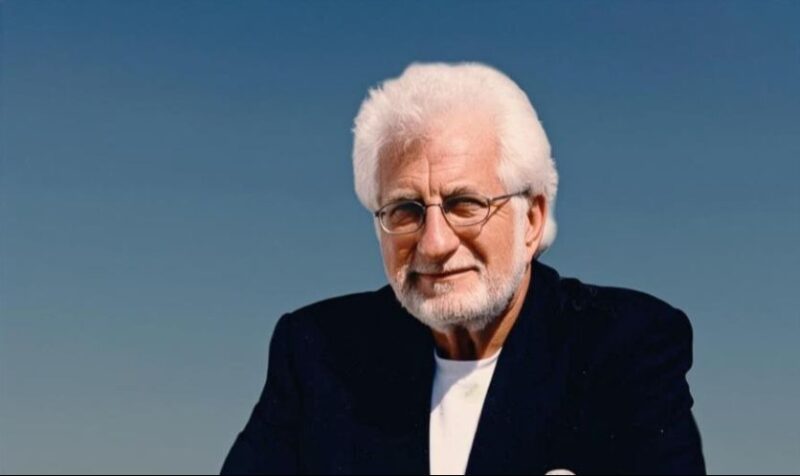
Courtesy
Stephen Muss.
Stephen Muss saved the Alexander Muss High School in Israel from bankruptcy by treating it like a hotel — an industry the Miami Beach businessman knew well.
He understood that “a not-for-profit organization cannot simply have its hand out and beg,” Ron Werner, AMHSI chairperson and president emeritus, told eJewishPhilanthropy. “But [it] needs to be fiscally responsible and managerially responsible to fulfill its obligations. When you do that, it’s a lot easier to have people who will invest in you.”
Muss died on Saturday at 97, leaving a legacy of rebirth for organizations in both the Jewish community and the greater Miami Beach community, acquaintances told eJP.
Born in New York City on Aug. 4, 1928, and raised in Brooklyn, Muss didn’t attend college, instead joining the family construction business, co-founding Alexander Muss & Sons with his father and brothers. Together, the family developed over 20,000 homes and 4,000 multifamily units across New York and New Jersey.
After relocating with his family to Florida in the 1950s, Muss helped revitalize Miami Beach, building iconic properties such as the Seacoast Towers, Towers of Key Biscayne and Towers of Quayside. At one point, he was also Miami Beach’s largest landlord, according to his obituary.
But he is best known in South Florida for rescuing the iconic Fontainebleau Hotel from bankruptcy, buying it for $28 million, investing $100 million in renovations and selling it for $165 million 27 years later. This renovation is credited with sparking a boom in Miami tourism. Although he didn’t see himself as “a hotelier,” he told the Miami Herald in 2005, still referring to himself as “a construction man,” running the Fontainebleau taught him the lessons that would later save the AMHSI.
“He understood [the AMHSI is] an operating entity,” Werner said. “You need good professionals, you need to do marketing, you need to be financially accountable. You need to maintain the physical plan, the dorm rooms, the cafeteria, the educational system… We take money from people, and we deliver a service. Families pay to send their kids on a travel program, for housing, for food, for care. That’s a business, and we need to treat these people like customers.”
Muss even changed how the school monitored finances, making projections in terms of “bed nights,” a term used in the hospitality industry to measure occupancy.
Founded in 1972 and originally named the “High School in Israel,” the study-abroad program was renamed after Muss’ father in 1981, one year after Muss made his first donation to the school. Later, he served as the school’s chairman for nine years, a stint that ended when it merged with Jewish National Fund-USA in 2014.
“He used to come into my office regularly and pop himself down on the couch,” Jacob Solomon, president and CEO emeritus of the Greater Miami Jewish Federation, told eJP. “Inevitably, he would say, ‘So aren’t you going to talk to me about my gift?’ I learned very early on that the best thing for me to do is just to shut up, because nobody solicited himself harder with higher expectations than Steve Muss.”
With “a booming voice and impressive shock of white hair that he brushed straight back so there was a leonine quality to him,” Muss would talk to Solomon about the need to get more teens to visit Israel.
“We spent hours and hours and hours thinking through what the best organizational structure for what the Alexander Muss High School in Israel should be,” Solomon recalled. “He knew that that it wasn’t just going to be one Intifada or two intifadas, it was going to be wars, it was going to be boycotts, it was going to be all kinds of things, and he knew that for the program to survive, it needed to have deep financial roots and backing.”
Muss was not a patient man, peers said. When funds were needed, he had to have them now, and he had no tolerance for bureaucracy in government or in Jewish organizations.
“He would fight tooth and nail with you,” Bob Werner, AMHSI secretary and audit co-chair (and Ron Werner’s father), told eJP. “We were working for the same goal, so after we scream at each other, we go and we just continue working for the school.”
In 2005, the elder Werner took Muss to lunch at a Spanish restaurant, where he broke the news that the AMHSI was nearing bankruptcy. “He just erupted,” Werner said. “He got very emotional. ‘I named the school after my father. It’s got to continue… We’re going to work together to make sure the school survives.’ And it happened.”
As much as bureaucracy annoyed him, Muss was a politician within the Jewish community and the larger Miami Beach community, the elder Werner said. Muss helped get local politicians to improve the city’s beaches and advocated for a 3% hotel bed tax, which was used to improve infrastructure and expand the Miami Beach Convention Center.
To secure AMHSI’s future, Werner and Muss set out to partner with a larger organization, and in meetings, Muss was the salesman. When a partnership was announced with JNF-USA in 2014, Muss donated $5 million to the larger organization.
“Having the school as part of the Jewish National Fund circle of impact is truly the story about a 125-year-[old] organization that is planning for the next 125 years as we invest in the most important element of our Jewish community — teenagers — connecting them to the land and people of Israel,” Russell Robinson, CEO of JNF-USA, told eJP.
Muss was “a great businessman,” Robinson said, “and he [knew] what a great [return on investment] is, and investing in teenagers is the greatest ROI for our Jewish community.”
Today, AMHSI is financially secure with campuses in Beersheva and Hod HaSharon. Over 35,000 high school students have attended AMHSI, including more than 10,000 from the South Florida region.
“When the school began the partnership with JNF-USA, it was serving 300-plus students a year,” the younger Werner, who attended AMHSI in 1982, said. “In 2024, we had 1,700 students signed up, on the way to 2,500. The vision and the dream of Stephen Muss was becoming a reality… Of all the entities that JNF is involved with and supports, the AMHSI logo is on every JNF business card and tagline. That’s a very powerful statement.”
After the Oct. 7 terror attacks, the school also served as a resource for Israelis recovering from the Hamas massacres and whose homes were hit by Iranian missiles, offering displaced Israelis housing, food and activities.
Muss also served as board chair of Miami Beach’s Temple Emanu-El and on the board of the Miami Art Museum and Haifa University. He was inducted into the Miami Beach Hall of Fame. He is survived by his partner, Amy Jeschawitz, four children and numerous grandchildren.
“Every day we each have the ability to make a difference in this world,” Muss said when he received the 2012 Greater Miami Jewish Federation Friend of Israel Humanitarian Award. “Whether it is through gifts of money and time, volunteering, inspiring others or by merely standing up for what you believe.”

 Add EJP on Google
Add EJP on Google
